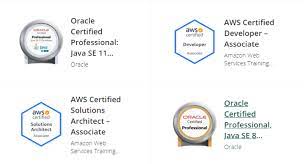Unlocking Success: The Journey of a Senior Software Engineer
The Role of a Senior Software Engineer in Today’s Tech Industry
In the fast-paced world of technology, senior software engineers play a crucial role in driving innovation and development. These experienced professionals are responsible for designing, developing, and maintaining complex software systems that power our digital world.
Key Responsibilities
A senior software engineer is typically involved in:
- Architecting and implementing software solutions
- Leading and mentoring junior team members
- Collaborating with cross-functional teams
- Ensuring code quality and performance
- Staying updated on industry trends and best practices
Skills and Qualifications
To excel in this role, senior software engineers need a combination of technical expertise and soft skills. Some key qualifications include:
- Proficiency in programming languages such as Java, Python, or C++
- Experience with software development methodologies like Agile or Scrum
- Strong problem-solving abilities and attention to detail
- Excellent communication and teamwork skills
- A continuous learning mindset to adapt to evolving technologies
Career Growth Opportunities
Senior software engineers often have the opportunity to advance into leadership roles such as tech lead, engineering manager, or chief technology officer. With experience and expertise, they can shape the direction of projects, mentor others, and contribute to strategic decision-making within organizations.
Conclusion
In conclusion, senior software engineers are vital assets in the tech industry, driving innovation and pushing boundaries to create cutting-edge solutions. Their technical prowess combined with leadership skills makes them invaluable contributors to the success of any software development team.
9 Essential Tips for Excelling as a Senior Software Engineer
- Stay updated with the latest technologies and trends in the industry.
- Focus on continuous learning and skill development to stay competitive.
- Practice good coding habits and adhere to best practices for software development.
- Communicate effectively with team members, stakeholders, and clients.
- Take ownership of projects and deliver high-quality work within deadlines.
- Collaborate with others to solve complex problems and share knowledge with colleagues.
- Stay organized by using project management tools and staying on top of tasks.
- Seek feedback from peers and mentors to improve your skills and grow professionally.
- Maintain a healthy work-life balance to prevent burnout and sustain long-term productivity.
Stay updated with the latest technologies and trends in the industry.
It is essential for senior software engineers to stay updated with the latest technologies and trends in the industry. By keeping abreast of advancements, tools, and best practices, they can enhance their skills, remain competitive in the job market, and contribute effectively to innovative projects. Continuous learning and adaptation to new technologies not only benefit the individual engineer but also play a significant role in driving progress and success within the ever-evolving landscape of software development.
Focus on continuous learning and skill development to stay competitive.
To thrive as a senior software engineer in today’s rapidly evolving tech landscape, it is crucial to prioritize continuous learning and skill development. By staying abreast of the latest technologies, trends, and best practices, senior software engineers can enhance their expertise and remain competitive in the industry. Embracing a mindset of lifelong learning not only broadens one’s knowledge but also fosters adaptability and innovation, enabling professionals to tackle complex challenges with confidence and excel in their roles.
Practice good coding habits and adhere to best practices for software development.
To excel as a senior software engineer, it is essential to practice good coding habits and adhere to best practices for software development. By following established coding standards, maintaining clean and well-documented code, and regularly reviewing and optimizing codebase, senior software engineers can ensure the reliability, scalability, and maintainability of their software systems. Embracing best practices not only enhances the quality of the code but also fosters collaboration within the development team and contributes to efficient project delivery.
Communicate effectively with team members, stakeholders, and clients.
Effective communication is a cornerstone of success for senior software engineers. By fostering clear and open communication channels with team members, stakeholders, and clients, senior software engineers can ensure that everyone is aligned on project goals, timelines, and expectations. This not only helps in building strong relationships within the team but also enhances collaboration and productivity. Additionally, transparent communication allows for timely feedback, problem-solving, and the ability to address any concerns proactively, ultimately leading to successful project outcomes.
Take ownership of projects and deliver high-quality work within deadlines.
To excel as a senior software engineer, it is crucial to take ownership of projects and consistently deliver high-quality work within set deadlines. By assuming responsibility for the tasks at hand and ensuring that the work meets or exceeds expectations, senior software engineers not only showcase their expertise but also demonstrate their commitment to driving successful project outcomes. This proactive approach not only instills confidence in team members and stakeholders but also contributes to a culture of excellence and accountability within the software development process.
Collaborate with others to solve complex problems and share knowledge with colleagues.
Collaboration is a cornerstone of success for senior software engineers. By working together with colleagues to tackle intricate challenges and sharing their expertise and insights, these professionals not only enhance the quality of solutions but also foster a culture of continuous learning within their teams. Through effective collaboration, senior software engineers leverage collective intelligence to overcome complexity, drive innovation, and achieve shared goals, ultimately contributing to the overall success of the projects they are involved in.
Stay organized by using project management tools and staying on top of tasks.
To excel as a senior software engineer, it is crucial to stay organized by utilizing project management tools and diligently staying on top of tasks. By effectively managing projects through tools like Jira, Trello, or Asana, senior software engineers can streamline workflows, track progress, and ensure timely delivery of high-quality software solutions. This proactive approach not only enhances productivity but also fosters collaboration within the team and helps in meeting project milestones efficiently.
Seek feedback from peers and mentors to improve your skills and grow professionally.
Seeking feedback from peers and mentors is a valuable practice for senior software engineers looking to enhance their skills and advance professionally. Constructive feedback provides insights into areas of improvement, helps identify blind spots, and offers guidance on how to further develop expertise. By actively seeking feedback, senior software engineers can foster a culture of continuous learning, adaptability, and growth, ultimately positioning themselves for greater success in the dynamic tech industry.
Maintain a healthy work-life balance to prevent burnout and sustain long-term productivity.
Maintaining a healthy work-life balance is essential for senior software engineers to prevent burnout and sustain long-term productivity. In the fast-paced and demanding tech industry, it’s easy to get consumed by work, leading to increased stress levels and decreased job satisfaction. By setting boundaries, taking regular breaks, and prioritizing self-care, senior software engineers can recharge both physically and mentally, enabling them to perform at their best while avoiding burnout. A balanced approach not only benefits the individual’s well-being but also contributes to sustained productivity and creativity in the long run.












